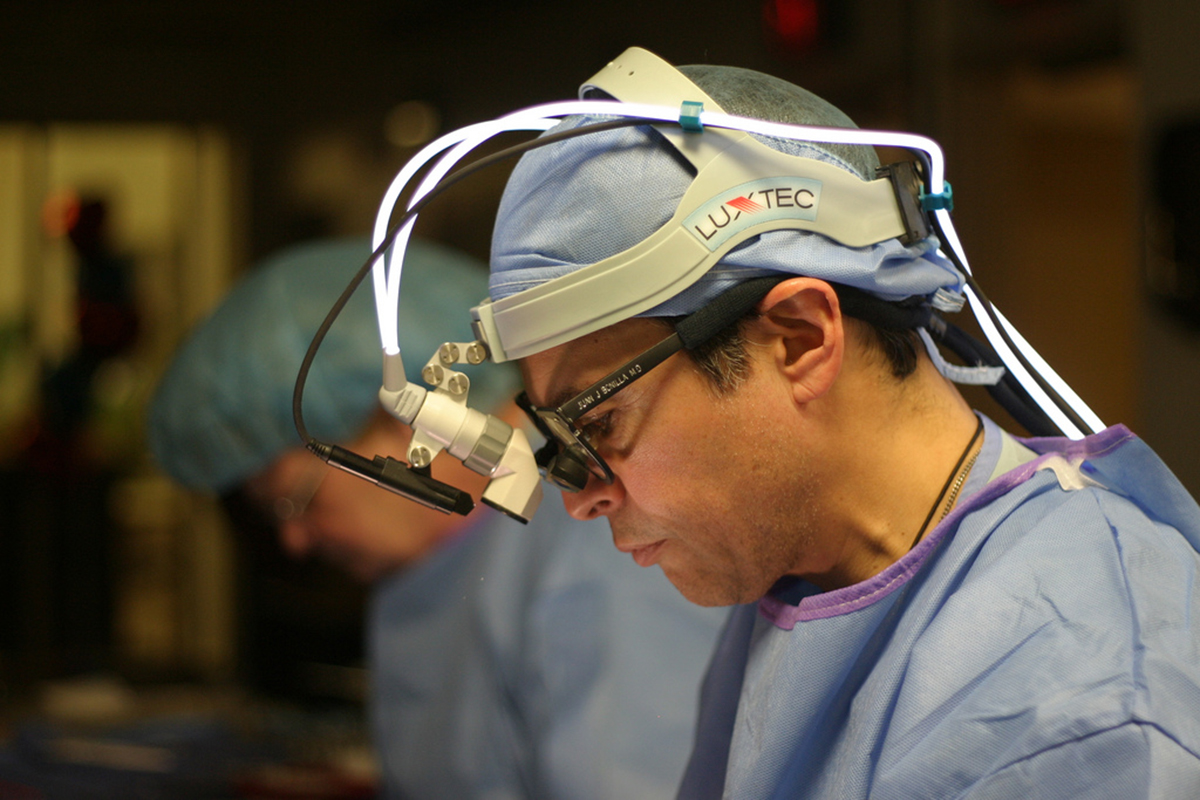Why Surgery Should Be Taken Seriously
All types of surgery carry some risk, though many routine procedures are so safe now that large numbers of patients fail to pay much attention to that fact. Surgery should always be taken seriously, and patients should remember that a number of factors affect the outcome of any surgical procedure. These factors inlcude the type of surgery and its duration, as well as what happens during the operation and possible complications as a result of the procedure. Well managed care in the hospital or facility where the surgery occurs is also essentialy.

There are two other factors that have been specifically connected to success:
- How healthy and prepaed the patient is.
- The quality of the surgeon and facility as defined by expertise, experience and ability related to the specific surgical procedure.
Types Of Surgery
There are essentially two types of surgery: elective and emergency or urgent.
Elective surgery is when a condition has been diagnosed and the recommended treatment is a surgical procedure. In this instance, the patient takes responsibility for determining if and when they will have surgery, and ultimately makes many of the decisions related to the procedure, including final approval of the recommended surgeon.
Emergency surgery, or urgent surgery typically takes place within a very short time frame. It's often the result of an urgent visit to an Emergency Room where surgery is determined to be an immediate remedy for a condition, or is deemed to be a life-saving procedure. In this instance the patient has little choice with regards to timing, facility and surgeon. Their general health and preparedness for surgery are also compromised, adding to the risk.
Surgery: Patient Preparedness Matters
When surgery is recommended as a treatment for a condition, many patients are confronting both the physical and emotional demands of the procedure for the first time. It's important to talk to your doctor and your surgeon about how you can prepare physically for the procedure. This could include mild or no exercise, dietary changes, medications, weight loss and other actions that your medical specialists recommend leading up to surgery. Few of these preparatory steps are possible in the event of emergency surgery.
There's also the emotional factor. Fear and anxiety are common when surgery is recommended. That's why it's so important to talk to your doctor and surgeon before the procedure to fully understand what is going to happen. There are also support groups that they can direct you to where you can meet with others in a group setting to express and manage your feelings prior to the procedure. Throughout this time there is the need for understanding and that begins with some critical questions you should ask.
The Quality Of The Surgeon
- Ask if your surgeon has done the procedure you need and how often. Remember too that quantity does not equal quality. If you need surgery to replace or repair a heart valve, and your surgeon has mostly performed heart bypass operations, you should consider finding a surgeon who specializes in heart valve procedures.
- Ask if their board certification is up-to-date. This ensures that they are aware of the latest advances, research, procedures and techniques. To check on a doctor's certification status in North America, visit the website of the American Board of Medical Specialties.
READ Doctors May Have Developed a New No-Knife Surgery for Gastric Bypass
Is This Surgery Necessary?
- Ask your General Practitioner and your surgeon if this surgery is truly necessary. If it's life-saving such as a transplant you probably won't need to ask this question. If it's highly elective which means you could live without the surgery, consider the risks versus the advantages very carefully.
- If you haven't already done so, ask why this particular procedure is recommended. Ideally, your surgeon will use illustrations or models to show you exactly what will be done and why.
- You could also ask if there are alternatives to the operation. There may be other treatment options. This is a question you should share with both your General Practitioner (GP) and the surgeon. Remember that surgeons often see surgery as an ideal solution as a direct result of the nature of their job. Your GP may have a broader view.
- If you are having second thoughts about having the surgery, you should ask what the implications will be. Often the answer is that you will be confronting an emergency procedure rather than an elective one.
- If you feel the need for a second opinion you could ask your doctor or surgeon to recommend someone. Some people feel they should go to an unconnected network or medical professional to get a more objective opinion. That's up to you, but doctors and surgeons are scientists and their recommendations are based on the empirical evidence for your condition. As a result, they will often concur on the recommended treatment regardless of their connection.
Going Under The Knife? Make Sure You're Well-Informed About Your Surgery
Preparing For The Surgery
Ask how the surgery will improve things and for how long. Some procedures correct a condition for a specific period of time, while others are life-long solutions. This could affect some of the decisions you make about the type of surgery that is being performed. Also ask if there are any long-term implications. Some surgeries require you to take anti-rejection medication in the case of a transplant, or a blood thinner for the rest of your life for some types of heart surgeries. You should also discuss if the procedure is reversible in the case of gastric-bypass surgery or vasectomies, although any questions related to reversing a vasectomy may lead the surgeon to question your decision to have the procedure done.

What are the risks of this operation? This is a tough question but you need to ask it. And it's not just about surviving the procedure but side-effects such as numbness or paralysis, the risk of stroke due to blood clots during the procedure, the possibility of infection after the procedure, the quality of the blood-supply in the event of a transfusion, side-effects and complications due to anesthesia, pain-management, and the overall statistical success rate for the procedure.
The Quality Of The Hospital Or Surgical Facility
- Where will the procedure be performed and is it accredited by the Joint Commission on Accreditation of Healthcare Organizations (JCAHO), or by the Accreditation Association for Ambulatory Healthcare? This ensures that the facility follows accepted and certified procedures as a surgical center.
- What's the infection rate at the facility? The surgeon may not know immediately, but should provide you with the resource or the information to find out. Hospitals will often share that information as well.
- Ask the surgeon if they regularly practice at the hospital or facility. If they do, it means they have some control and approval of surgical staff, assistants, anesthesiologists and other support for your procedure.
An important question for the surgeon and the hospital is whether or not they accept or are in the network for your current insurance plan. Your insurer can also help answer this question. This varies depending on your country and your insurance but you don't want to find out after the fact that you owe a significant amount of money.
Your Recovery And What You Can Expect
- Make sure you ask and understand about your recovery from the surgery. Ask if you will be provided with a recovery plan and the list of conditions, complications or side-effects that you should respond to immediately. This should also identify your medication schedule and dates for follow-up visits to assess your progress. Ask as well when you can begin to resume activities and what lifestyle changes you may need to make.
READ Dangerously Low Sodium Levels Common After Surgery For Broken Hips
Many people find that this level of research and questioning helps them to prepare for surgery both emotionally and physically. You should also involve your family members in this process and make sure they understand what you have learned. They will also be feeling many emotions as you approach your surgery date and have the same need for reassurance. Overall, the numbers on your side as statistics show that more and more surgical procedures lead to positive outcomes. One way to make sure you're part of those good statistics is the ask the questions and be prepared.
- Birkmeyer J, Stukel T, Siewers AE, et al. Surgeon volume and operative mortality in the United States. N Engl J Med. 2003
- 349:2117-2127.
- Chen J, Radford MJ, Wang Y, et al. Do "America's Best Hospitals" perform better for acute myocardial infarction? N Engl J Med. 1999
- 340:286-292.
- Clancy CM. Do your homework before you choose a hospital. Agency for Healthcare Research and Quality website. Published June 17, 2008.
- Considering surgery? National Institute on Aging website. Available at: Updated March 18, 2014. Accessed June 12, 2014.
- Krumholz HM, Rathore SS, Chen J, et al. Evaluation of a consumer-oriented internet healthcare report card: the risk of quality ratings based on mortality data. JAMA. 2002 Mar 13
- 287:1277-1287.
- Nugent WC. In health care, geography is destiny [editorial]. J Thoracic Cardiovascular Surg. 2000
- 120(5). Patient safety. American Academy of Orthopedic Surgeons Ortho Info website. Updated December 2013.
- Public information from the American College of Surgeons. American College of Surgeons website. Updated June 4, 2012.
- Photo courtesy of akeg via Flickr: www.flickr.com/photos/akeg/6841123845
- Photo courtesy of 593D ESC via Flickr: www.flickr.com/photos/593rd/14550509398
- Hospital statistics and scorecard: http://www.hospitalcompare.hhs.gov Surgeon Board certification: http://www.abms.org.


Your thoughts on this